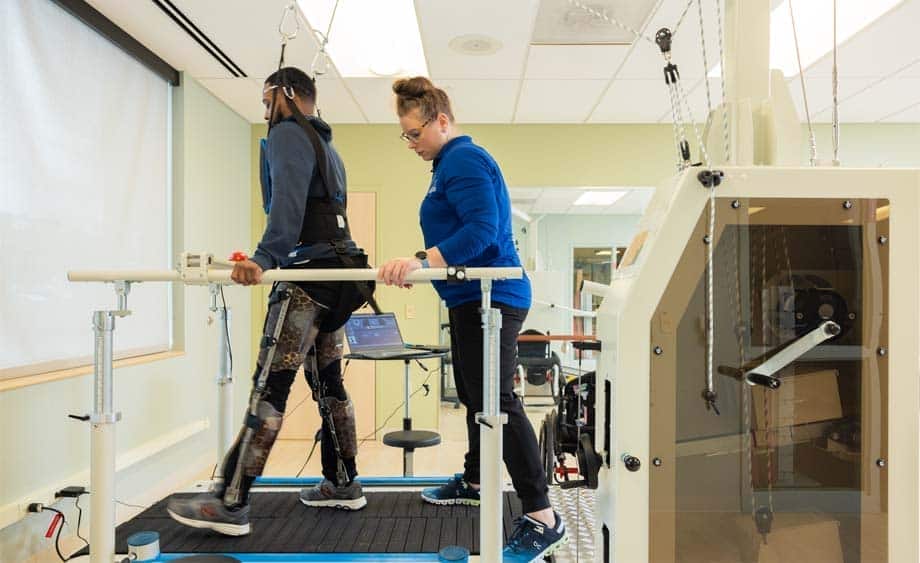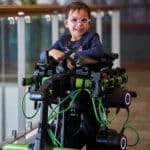Why Choose Us
Learn more about Good Shepherd Rehabilitation Hospital, a destination for recovery for stroke, brain injury, spinal cord injury and complex medical rehabilitation.

A spinal cord injury (SCI) results from damage to the spinal column’s discs, vertebrae or ligaments or to the spinal cord itself. Most SCIs are categorized as traumatic; they’re the result of a sudden injury to your spine that fractures, crushes, dislocates or compresses one or more vertebrae. It can also result from something that penetrates or cuts your spinal cord, such as a knife or gunshot wound.
Spinal cord injuries can also be considered non-traumatic. Arthritis, cancer, inflammation, infections, progressive diseases or disc degeneration are among the causes. The symptoms of a non-traumatic SCI may appear over a matter of days, weeks or months.
Your central nervous system consists of your brain and spinal cord. The spinal cord extends from the base of your brain to the region just above your waist. It’s made of soft tissue, nerve cells and groups of nerves that go to different parts of your body and bones called vertebrae.
The spinal cord is like a superhighway for messages between your brain and every point in your body. Many different types of specialized nerves carry the messages. Some carry motor signals that control movement and function. Others carry sensory signals to relate pain, cold, heat, pressure or the position of your limbs.
A spinal cord injury diminishes or blocks sections of this superhighway of nerve connections. The position of the injury determines which muscles, nerves and functions are affected below the injury site.
Anyone with a traumatic or non-traumatic spinal cord injury requires SCI rehabilitation to recover as much function as possible. But not every SCI will be apparent immediately. Symptoms may be mild initially and gradually worsen over time. They may include:
If you experience any of these symptoms, you should consult your physician as soon as possible for a diagnosis. Your symptoms and your SCI may become worse if left untreated. Further damage can occur weeks after the injury due to bleeding, swelling, inflammation and fluid accumulation in and around your spinal cord.
Inpatient SCI rehabilitation is the care you receive during your hospital stay. Depending on the severity of your injury and symptoms, it may last a few weeks or several months. Your inpatient SCI rehab will address the medical, physical and psychological effects of your spinal cord injury.
Outpatient SCI rehabilitation is the type of care you receive when you’re not in the hospital. This will be the rehab program designed by your physiatrist and may include physical, occupational, speech and other therapies. Outpatient therapy lasts until you can safely and confidently manage your care at home.
Technologies are improving every year to treat spinal cord injuries. The type of technologies available to you are determined by the nature of your injury and where you receive your SCI rehabilitation.

Good Shepherd Rehabilitation is a leader in treating SCIs with leading-edge technology, including:
Your physiatrist, a doctor who specializes in physical medicine and rehabilitation, will design and manage your SCI rehabilitation program. Which specialists are involved in your rehabilitation depends on your injury and symptoms. In addition to your physiatrist, your team may include:
For more information on treating your spinal cord injury, see our spinal cord injury page or call 1.888.44.REHAB (73422).